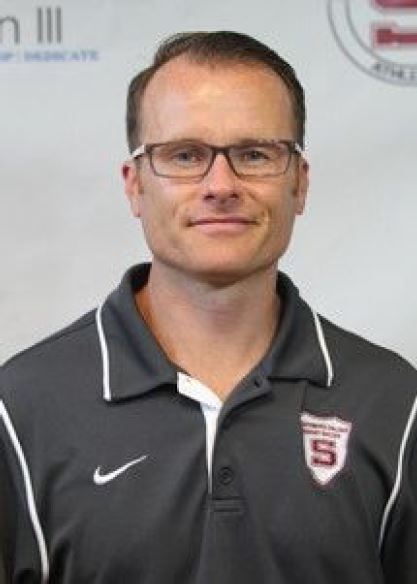Elite 300 Soccer Academy
Featured Coach
Meet the Staff: Ciarán Dalton
Ciarán Dalton has been assistant coach at Swarthmore College since 2003. He currently ranks second all-time in Millersville University history in goals with 43, assists (19), and points (105). Dalton also played semi-professionally for the Cobh Ramblers in Ireland.
Dalton earned his B.A. in Special Education from Millersville in 2000 and his Master's Degree in regular education at Temple University in 2004. He earned his doctorate in clinical psychology from Immaculata University in 2011. In addition, Dalton has a private practice in Media where he specializes in sport psychology.
Dalton has launched the psychological development of the Garnet players through confidence building, visual imagery, cognitive strategies, mindfulness, and improved focus. Dalton has helped the Garnet become a leader in community service, and is also involved with many local youth soccer programs. For additional sport psychology information visit www.cdaltonpsychology.com .
He resides in Wallingford with his wife, Jenn and two children, Jack and Addison.
Describe your playing background; when did you realize the mental side of the game really mattered?
I was an all-county high school player, 4-year starter and captain at Millersville University, and I played professionally in Ireland. I didn't realize the magnitude of the mental side of the game until after my career ended. For example, I now know that my confidence was at an all-time high at Millersville and dropped when I arrived in Ireland not because of any changes in my ability to play the game, but because of how I was thinking about myself and my abilities.
Why is sports psychology important? Can the mental side of the game be trained?
As soccer players work their way up the ranks to more elite teams and greater levels of competition, the difference in physical abilities becomes smaller. For example, there is very little difference in physical ability between starters and reserves at the professional level. All professionals are technically gifted, fast, fit, strong, and tactically knowledgeable. As a result, the mental aspect of the game can determine whether a soccer player succeeds or fails. Things like confidence, responding favorably to pressure and failure, and handling anxiety or anger appropriately become exceedingly important.
These things can definitely be trained. Many athletes falsely assume that their sport-related psychology or mentality is a fixed characteristic or "will always be that way." I challenge that thinking by asking them to explain a physical weakness in their game that has improved. They share stories about how practice, discipline, and repetition turned their weakness into a strength. I then tell them that the same is true for their mental weaknesses. Through specific training/therapy and repetition the athlete can turn a mental weakness into a strength.
Who of all the players you worked with has had the best mindset? Why?
Any player, regardless of sport, who comes to me with an open mind about sport psychology has the best mindset because they are willing to permit the strategies to work. Sometimes players need a little convincing because it is difficult to imagine that work in a psychologists' office will help on-field performance, but with an open mind and a willingness to work on the strategies, most athletes begin to experience the benefits of working with a sport psychologist.
What are the key mental attributes players should look to develop?
Athletes should be ready to increase awareness of their own thoughts and emotions, especially negative ones. Sometimes these things internally pop up out of one's awareness. Quickly identifying negative thoughts and feelings permits the player to see the problem and then use the strategies that can counteract performance-hindering anxiety or prevent confidence from tanking.
How do you help teams develop psychologically?
I introduce teams to the basic concepts pertaining to cognitive behavior therapy and mindfulness. We will practice exercises designed to increase awareness and mental toughness while helping the players respond to failure in a beneficial way. Once I get an idea of individual and overall team personality, then I can adjust my approach to best suit the team.
How can a player first start working on the mental side of their game? Are there things they can try on their own?
One of the most beneficial things a soccer player can do is monitor their self-reflection following training sessions and games. Most players are surprised to learn that they dwell on the mistakes far too long, which usually hurts confidence. I always suggest that a player spend about 5-10 minutes thinking about mistakes and developing a plan to solve the problem. Then move on. The next 20-plus minutes of reflection should be devoted to reliving the good moments on the field. This will build confidence and increase the likelihood that these types of moments will take place in the future.


